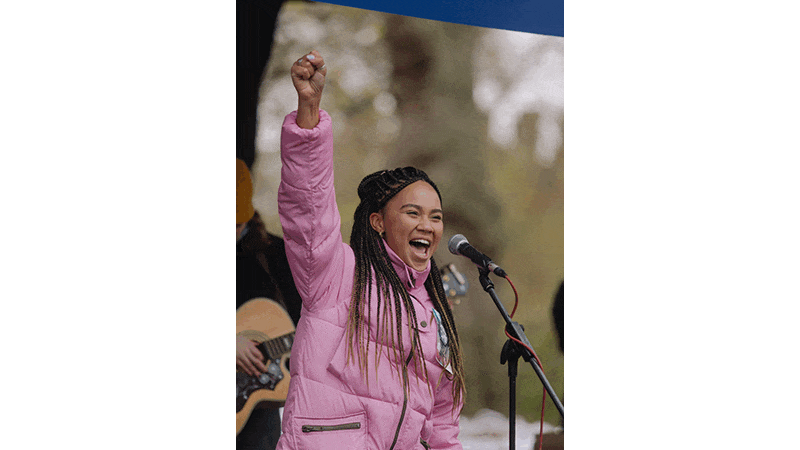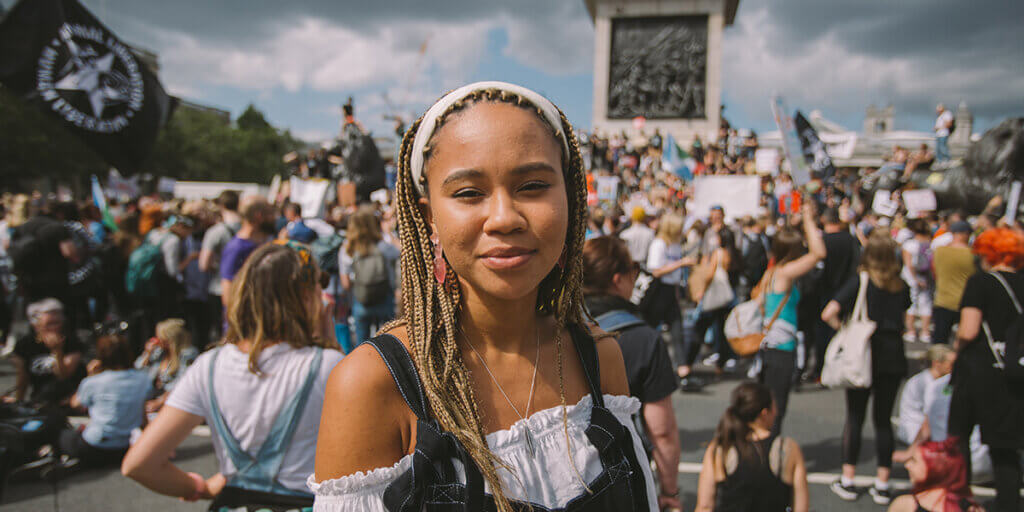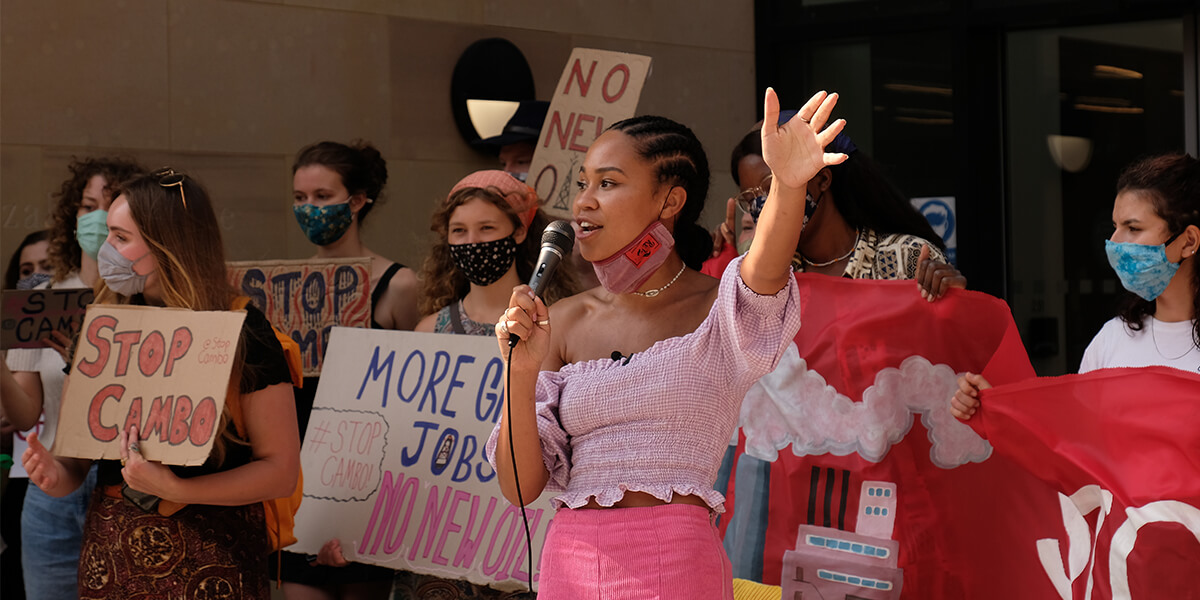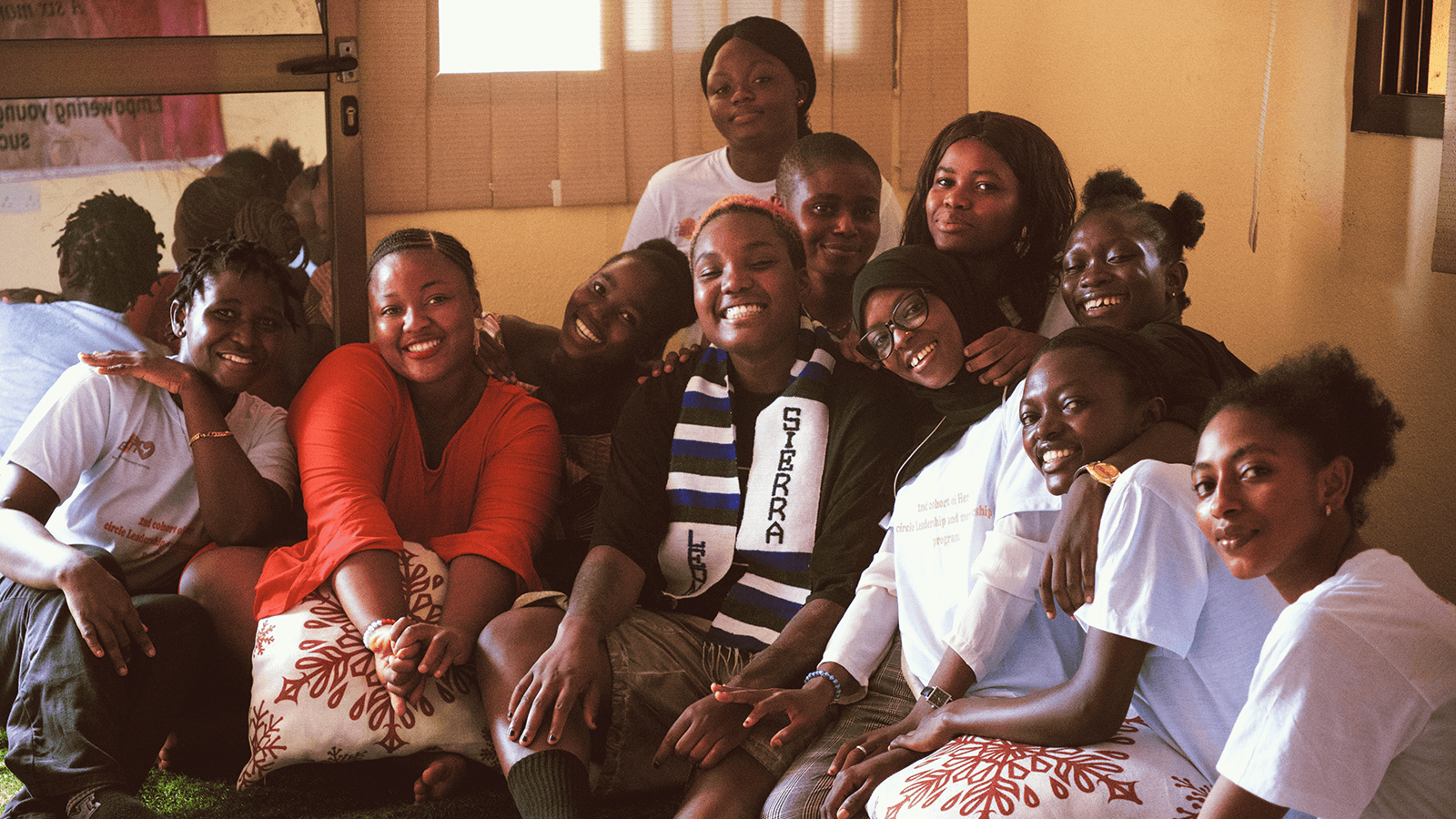Climate Activist Mikaela Loach: “The World Has Never Changed Without People Changing It”
“If we recognise that the climate crisis is inherently connected to every other issue, it gives us the best opportunity we’ve had in the last few hundred years to tackle its root systems,” proclaims climate justice campaigner Mikaela Loach. “We could really transform our entire world.”
Comments like these are typical of Loach’s relentless optimism, which is a source of inspiration and hope for many (not least her 187K Instagram followers) amid the doom and gloom of the news cycle. Staying positive in the face of humanity’s biggest ever challenge doesn’t always come easy, but she says: “What gives me optimism is knowing that people in the past also felt that they had this unsurmountable feat in front of them, yet they still managed to overcome it.”
In the past few years Loach, who was born in Jamaica and grew up in the UK, has become a leading voice in the fight against climate change, writing her first book, It’s Not That Radical, aimed at demystifying climate action. Her mission: to channel anxiety into action and turn crisis into opportunity.

What does that opportunity look like? Loach draws inspiration from Colombia’s 2022 general elections, in which a progressive ‘Historic Pact’ coalition government was formed among the grassroots activist organisations that champion some of its most marginalised people. Loach spent time in Colombia working with Afro-Colombian and Afro-Indigenous climate justice groups in the lead up to the 2022 ballot. Though this coalition has since suffered defeats in local elections, she is energised by the idea that in tackling the climate crisis, it’s also possible to address the harms that were caused by colonialism and capitalism.
“I believe a big reason why [Historic Pact] won the election in 2022 was based on the promotion of climate justice, which in turn tackles the continuation of harm caused by extractivism [the environmentally harmful mining of raw materials such as fossil fuels] that [historically relied on] the enslavement of people, especially in the Black communities in Colombia,” she says. “It wasn’t just about reducing emissions, the government really promised to tackle the issues causing harm to both the planet and the people.”
In the UK, the opportunity arising from climate action may look different. As the country has some of the leakiest homes in Europe and some of the highest energy bills in the world, Loach suggests that solutions such as utilising insulation and promoting community-owned energy could address fuel poverty and lower carbon emissions. She doesn’t claim to have an answer for everything, but she believes issues like these are exactly where we should be focusing our collective imagination. “I don’t want us to get distracted by this idea of a finish line,” she says. “We can’t keep leaving things at the side because they don’t seem clear cut or easy. We have to deal with a lot of different issues simultaneously.”
The work of a climate activist is often overwhelming, especially when our weather system is drastically changing in real-time – summer 2023 was the hottest on record, causing chaos all around the globe. How does Loach cope with this information? “It weighs on my heart a lot and often breaks it, but the world has never changed without people changing it. Being passive in the face of all this or being apathetic isn’t going to change anything. It’s going to make us feel worse and worse.”
Alongside 75% of us, Loach also experiences climate anxiety. “A lot of my anxiety comes from this feeling that we have no agency or power to change anything, but then I remind myself of the agency and power that we do have.” Now she channels that anxiety into action via campaigns such as Stop Rosebank, which is dedicated to ending all new oil and gas in extraction the UK. She also staged a walkout at the Edinburgh International Book Festival in August in protest at the festival’s main sponsor Baillie Gifford’s £5billion of investments in the fossil fuel industry.
It can be hard to know where to start, but Loach suggests using Ayana Elizabeth Johnson’s Climate Action Venn Diagram to find out which type of climate action you can take to bring you joy. “Finding that intersection spot is what’s important,” she says. “That spot can move – for me, it has. Over the years, I’ve stopped and started things until I’ve found out what I’m good at.”
And she’s determined to keep going. “While there’s breath in our lungs, there will be work and we have to do it. That doesn’t mean we have to do it 24/7 and burn our brains and destroy our health, it means we need to find a way to be able to do this work in the long run.”

Mikaela’s 5 Positive Climate Actions To Take Now
- Volunteer in your local area. You may decide to join an environmental group, but it could also be a mutual aid group, a community farm or an anti-raids group [which work to stop immigration raids]. All these things are part of climate justice.
- Take the actions listed on the Stop Rosebank website, such as joining a street protest, organising a digital campaign or writing to your local politicians. There’s still time for us to stop new oil and gas extraction in the North Sea.
- Join a union (this could be a trade, student or renters’ union) to harness the power of collective bargaining.
- Move your money to a sustainable bank. Some examples are Monzo, Aspiration, Nationwide or any of these others. The key is to do your research.
- Green your pension by telling your provider to go green or move your pension money to a more ethical fund such as NEST or PensionBee Fossil Fuel Free plan.
Diyora Shadijanova is a London-based journalist who has written for publications including gal-dem, Vice and The Face




